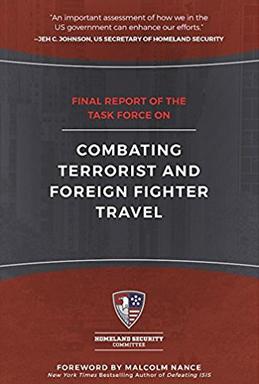
DynCorp, formally DynCorp International, was an American private military contractor. Started as an aviation company, the company also provided flight operations support, training and mentoring, international development, intelligence training and support, contingency operations, security, and operations and maintenance of land vehicles. DynCorp received more than 96% of its more than $3 billion in annual revenue from the U.S. federal government. The corporate headquarters were in an unincorporated part of Fairfax County near Falls Church, Virginia, while the company's contracts were managed from its office at Alliance Airport in Fort Worth, Texas. DynCorp provided services for the U.S. military in several theaters, including Bolivia, Bosnia, Somalia, Angola, Haiti, Colombia, Kosovo and Kuwait. It also provided much of the security for Afghan president Hamid Karzai's presidential guard and trained much of the police forces of Iraq and Afghanistan. DynCorp was also hired to assist recovery in Louisiana and neighboring areas after Hurricane Katrina. The company held one contract on every round of competition since receiving the first Contract Field Teams contract in 1951.

A private military company (PMC) or private military and security company (PMSC) is a private company providing armed combat or security services for financial gain. PMCs refer to their personnel as "security contractors" or "private military contractors".

KBR, Inc. is a U.S. based company operating in fields of science, technology and engineering.

Christopher Hunter Shays is an American politician. He previously served in the United States House of Representatives as representative of the 4th District of Connecticut. He is a member of the Republican Party.
Academi, formerly known as Blackwater, is an American private military contractor founded on December 26, 1996, by former Navy SEAL officer Erik Prince. It was renamed Xe Services in 2009, and was again renamed to Academi in 2011, after it was acquired by a group of private investors. In 2014, Academi merged with Triple Canopy to form Constellis Holdings.
Investment in post-2003 Iraq refers to international efforts to rebuild the infrastructure of Iraq since the Iraq War in 2003. Along with the economic reform of Iraq, international projects have been implemented to repair and upgrade Iraqi water and sewage treatment plants, electricity production, hospitals, schools, housing, and transportation systems. Much of the work has been funded by the Iraq Relief and Reconstruction Fund, and the Coalition Provisional Authority.

The Project On Government Oversight (POGO) is a nonpartisan non-profit organization based in Washington, DC, that investigates and works to expose waste, fraud, abuse, and conflicts of interest in the U.S. federal government. According to its website, POGO works with whistleblowers and government insiders to identify wrongdoing in the federal government, and works with government officials to implement policy changes based on its investigations. POGO is led by executive director Danielle Brian.
Custer Battles, LLC was a defense contractor headquartered in Middletown, Rhode Island, with offices in McLean, Virginia. The company now appears to be out of business. At one time the company offered services that include security services, litigation support, global risk consulting, training and business intelligence, but had no background or track record in offering any of these services.

The military budget of the United States is the largest portion of the discretionary federal budget allocated to the Department of Defense (DoD), or more broadly, the portion of the budget that goes to any military-related expenditures. The military budget pays the salaries, training, and health care of uniformed and civilian personnel, maintains arms, equipment and facilities, funds operations, and develops and buys new items. The budget funds five branches of the US military: the Army, Navy, Marine Corps, Air Force, and Space Force.

The Truman Committee, formally known as the Senate Special Committee to Investigate the National Defense Program, was a United States Congressional investigative body, headed by Senator Harry S. Truman. The bipartisan special committee was formed in March 1941 to find and correct problems in US war production with waste, inefficiency, and war profiteering. The Truman Committee proved to be one of the most successful investigative efforts ever mounted by the U.S. government: an initial budget of $15,000 was expanded over three years to $360,000 to save an estimated $10–15 billion in military spending and thousands of lives of U.S. servicemen. For comparison, the entire cost of the simultaneous Manhattan Project, which created the first atomic bombs, was $2 billion. Chairing the committee helped Truman make a name for himself beyond his political machine origins and was a major factor in the decision to nominate him as vice president, which would propel him to the presidency after the death of Franklin D. Roosevelt.

The Office of the Special Inspector General for Iraq Reconstruction (SIGIR) was created as the successor to the Coalition Provisional Authority Office of Inspector General (CPA-IG). SIGIR was an independent government agency created by the Congress to provide oversight of the use of the $52 billion U.S. reconstruction program in Iraq. Stuart W. Bowen Jr. was appointed to the position of CPA-IG on January 20, 2004 and served until its closure in October 2013. Sand served until its closure in October 2013. SIGIR reported directly to Congress, the Secretary of State, and the Secretary of Defense.
ArmorGroup International is a British company providing private security. It was founded in 1981 and was listed on the London Stock Exchange until 6 June 2008.
The National Defense Authorization Act for Fiscal Year 2008 is a law in the United States signed by President George W. Bush on January 28, 2008. As a bill it was H.R. 4986 in the 110th Congress. The overall purpose of the law is to authorize funding for the defense of the United States and its interests abroad, for military construction, and for national security-related energy programs. In a controversial signing statement, President Bush instructed the executive branch to construe Sections 841, 846, 1079, and 1222 "in a manner consistent with the constitutional authority of the President".
Iraq War misappropriation refers to allegations that billions of dollars of US government funds, originally meant for reconstruction and rebuilding programs, were misappropriated during the Iraq War.

The Department of Defense Office of Inspector General is an independent, objective agency that provides oversight related to the programs and operations of the United States Department of Defense (DoD). DoD IG was created in 1982 as an amendment to the Inspector General Act of 1978.

The Department of Defense Whistleblower Program in the United States is a whistleblower protection program within the U.S. Department of Defense (DoD) whereby DoD personnel are trained on whistleblower rights. The Inspector General's commitment fulfills, in part, the federal mandate to protect whistleblowers. It also administers the Defense Intelligence Community Whistleblower Protection Program (DICWP), as a sub-mission for the intelligence community. The Inspector General's Defense Criminal Investigative Service also conducts criminal investigations which rely, in part, on Qui Tam relators.

A burn pit is an area of a United States military base in which waste is disposed of by burning.

The Special Inspector General for Afghanistan Reconstruction (SIGAR) is the U.S. government's leading oversight authority on Afghanistan reconstruction. Congress created the Office of the Special Inspector General for Afghanistan Reconstruction to provide independent and objective oversight of the Afghanistan Reconstruction funds. Under the authority of Section 1229 of the National Defense Authorization Act for Fiscal Year 2008, SIGAR conducts audit, inspections, and investigations to promote efficiency and effectiveness of reconstruction programs, and to detect and prevent waste, fraud, and abuse of taxpayer dollars. SIGAR also has a hotline that allows individuals to report suspected fraud.

Triple Canopy, Inc., is an American private security company that provides integrated security, mission support and risk management services to corporate, government and nonprofit clients. The firm was founded in May 2003 by United States Army Special Forces veterans, including former Delta Force operators. In June 2014, the firm merged with rival security contracting firm Academi, formerly Blackwater, to form Constellis Group, with Craig Nixon, the former CEO of Academi, becoming the CEO of Constellis Group, and training facilities being consolidated at the existing Academi training facility in North Carolina. It was staffed by, among others, a number of former Army Special Operations personnel, Green Berets, Rangers, SEALs, MARSOC Raiders, other special operations personnel, and several law enforcement officers. At the time of the merger, over 5,000 employees were working for Triple Canopy.

Final Report of the Task Force on Combating Terrorist and Foreign Fighter Travel is a report about counterterrorism and foreign fighters in the Syrian and Iraqi Civil Wars by a bipartisan task force of the United States House Committee on Homeland Security, with a foreword by cryptology analyst and author Malcolm Nance. The work was released by the United States Government Publishing Office in 2015 as an unillustrated committee print, by the United States House Committee on Homeland Security in September 2015 in an illustrated edition, and as a paperback book in 2016 by Skyhorse Publishing. The report discusses United States citizens leaving their country to gain fighting experience in Iraq and Syria on the battlefield. It notes some linked up with the Syrian Civil War in order to attempt to remove Syrian leader Bashar al-Assad from power, later joining ISIS. According to the work, approximately 4,500 from the Western world left their countries to join ISIS, including over 250 American citizens. The report gives thirty-two recommendations to address the problem, including tactics to stop travels of battlefield soldiers to and from their countries of origin, ways to change executive branch policies, and methods to determine which individuals are planning terrorist activities.














